A Kenyan technology firm has embarked on an ambitious bid to introduce electric motorcycles in Kenya.
Mazi Mobility, with backing of Satgana, a global venture builder that funds project contributing to clean energy, has launched its flagship motorcycle, the Magnus 3000 (M3K). The motorcycles are assembled in Kenya.
Launched in October 2020, the M3K electric motorcycle is one of a kind, Mazi Mobility Chief Executive Officer and Founder Jesse Forrester told AutoNews Magazine in an interview.
The MK3 is assembled at Kenya the Eastlands College of Technology in Nairobi’s industrial area, providing jobs and expertise on electric mobility to Kenyans right from its onset in Africa.

‘This motorcycle can ride 140 kilometers without a recharge, Forrester said even as he noted Kenya lacks proper infrastructure to support electric mobility.’
Jesse Forester, Chief Executive Officer and Founder of Mazi Mobility FILE | PHOTO
Range anxiety, he said, is the biggest concern against adoption of electric mobility in Kenya. But Mazi Mobility is alive to this concern. Range anxiety means the distance an electric vehicle can cover without the need for battery recharge.
The company operates a battery swapping model and is currently setting up a station in Nairobi Central Business District. To date, over 100 battery swaps have been executed.
Dubbed battery-as-a-Service (BaaS), the battery swapping business model will see Mazi retain the batteries used to power the MK3 motorcycle.
“We continue to provide battery maintenance service,” he said.
Forrester said Mazi has over 10 electric motorcycles operating in Nairobi with plans to increase the number before the end of this year.
Electric motorcycles cut operation costs by up to 50 %. This makes eclectic motorcycles a good alternative for people who eke out a living out of boda boda transport.
The MK3 has few moving parts compared to other petrol-powered motorcycles. It does not require regular service like the normal motorcycles. It also eliminates running costs that include petrol, a commodity that has seen a sharp increase in cost over the past few months.
Retailing at Sh 160,000, Mazi believes the MK3 is a good bet for commercial boda boda operators in Nairobi.
According to data collected by Mazi, a boda boda rider in Nairobi covers about 120 kilometers a day. This means the MK3 can sufficiently cover the needs of the riders.
“We are investing in an efficient battery swapping mechanism. Riders will spend less time than they take fueling a motorcycle. Mazi wants customers to have little concerns over battery power by taking care of battery charging and replacement,” Forrester explained.
After full roll out of the battery swapping services, customers will forget about delays of having to wait for batteries to recharge.
The service will be available on a mobile app where riders will locate nearest swap stations and replace their batteries in under three minutes.
According to Mazi, the M3K is made to outperform standard fossil powered motorcycles. They also want customers to receive battery swapping notifications on their mobile phones.
The MK3 uses an electric motor to propel the rear wheel, replacing need for a chain. It has a digital speedometer and has a top speed of 80 kilometers per hour.
On an interesting twist, the MK3 has a reverse gear “to help you park properly”, Forrester added. “But the reverse speed is low for safety.”
This motorcycle compares to 200 cc models available in the market. The major distinction is that it has a higher load capacity estimated to be over 200 kilograms.
Mazi has reported a positive market response , Forrester, the company CEO noted. “We are receiving a lot of enquiries from individual and corporate clients,” he said. There are over 10 motorcycles at the company garage waiting to be collected by customers. Before the end of 2021, Mazi hopes to sell about 100 motorcycles.
Electric mobility is touted to be the future of transport as the world moves towards reducing carbon emissions. It is the biggest revolution in motoring since Henry Ford commenced production of vehicles in 1913.
Big vehicle manufacturers have announced timelines when they will cease production of petrol- and diesel-powered engines. Jaguar will only sell electric cars from 2025, British sportscar maker Lotus said it go full electric from 2028 while Volvo will only sell electric vehicles beginning 2030.
Kenya also plans to increase the number of electric vehicles in the country in the next five years with a goal to have electric vehicles account for 5% of all registered vehicles in the country by 2025.
In a new move to prepare required infrastructure, all new public buildings are required to install vehicle charging stations.
Mazi is positioning itself for this shift which may appear mild for now.
However, Kenya has high numbers of newly registered motorcycles, estimated to be 1.5 million in 2018 and projected to surge to 5 million by 2030. Kenya lacks regulation on emissions standards or programmes. Mazi’s timely MK3 may provide the solution to zero tailpipe motorcycle emissions.
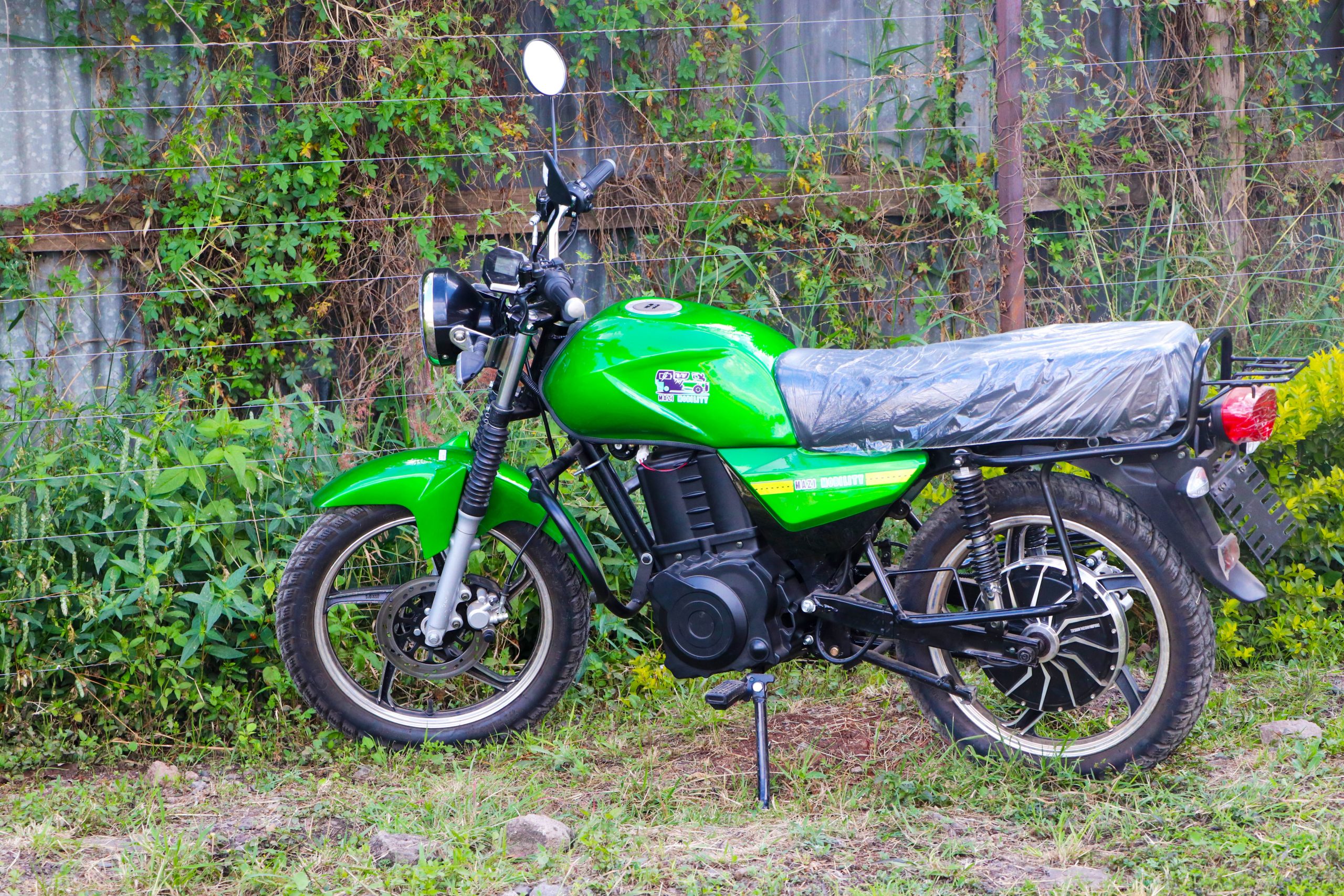
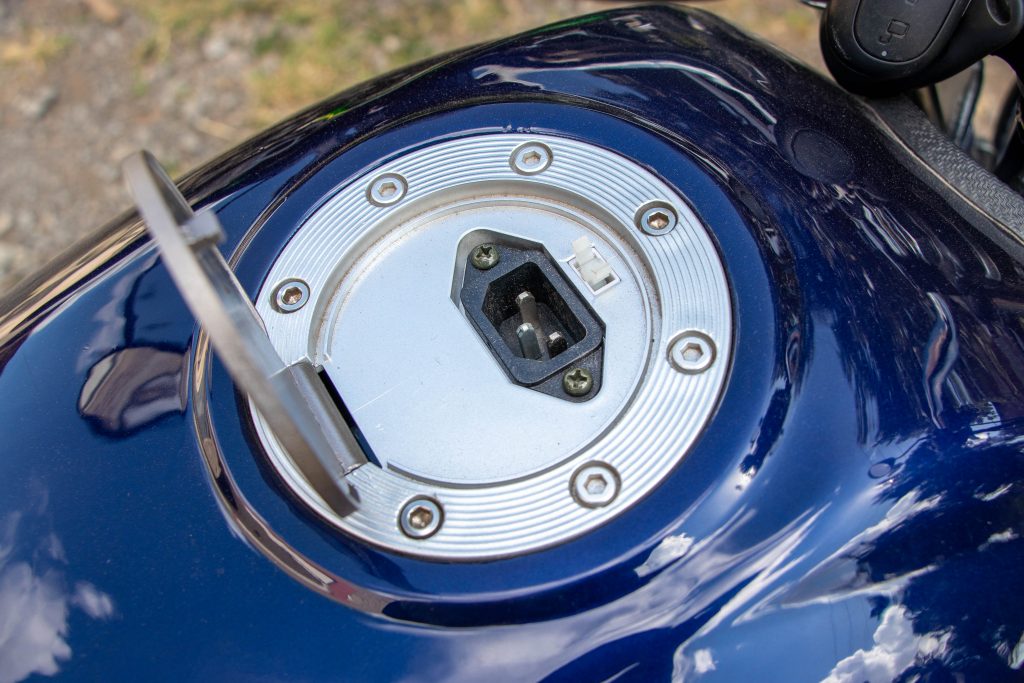
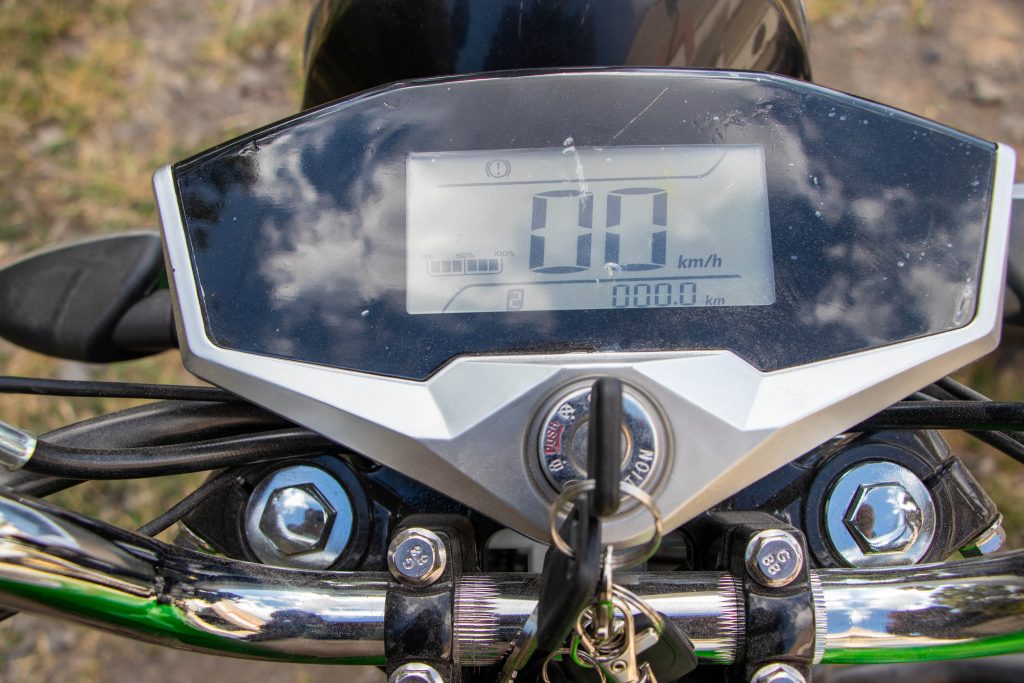
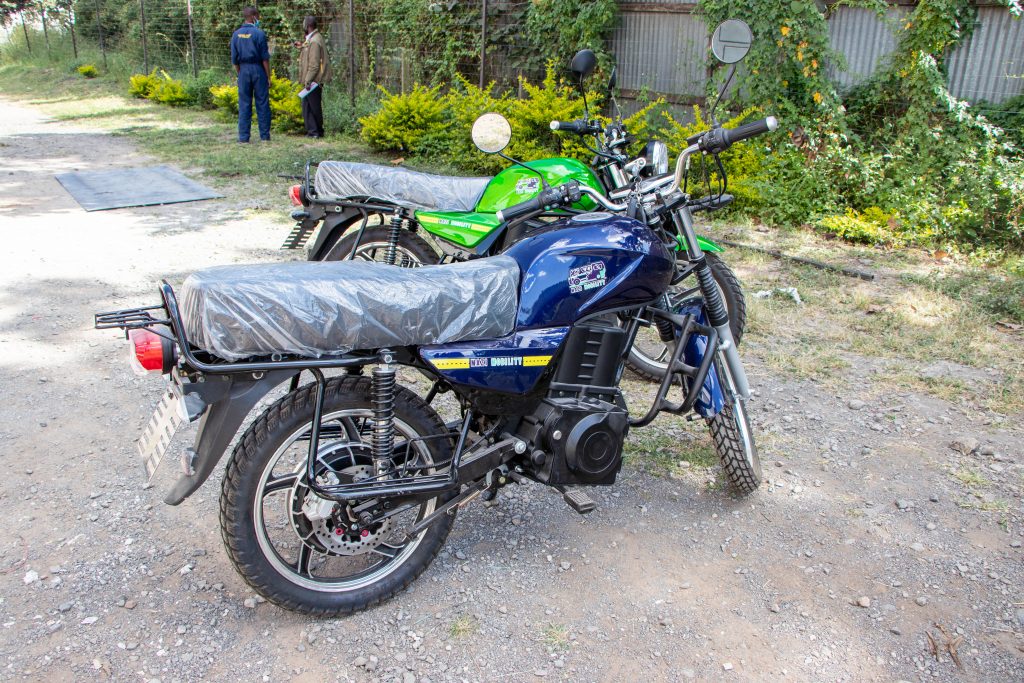
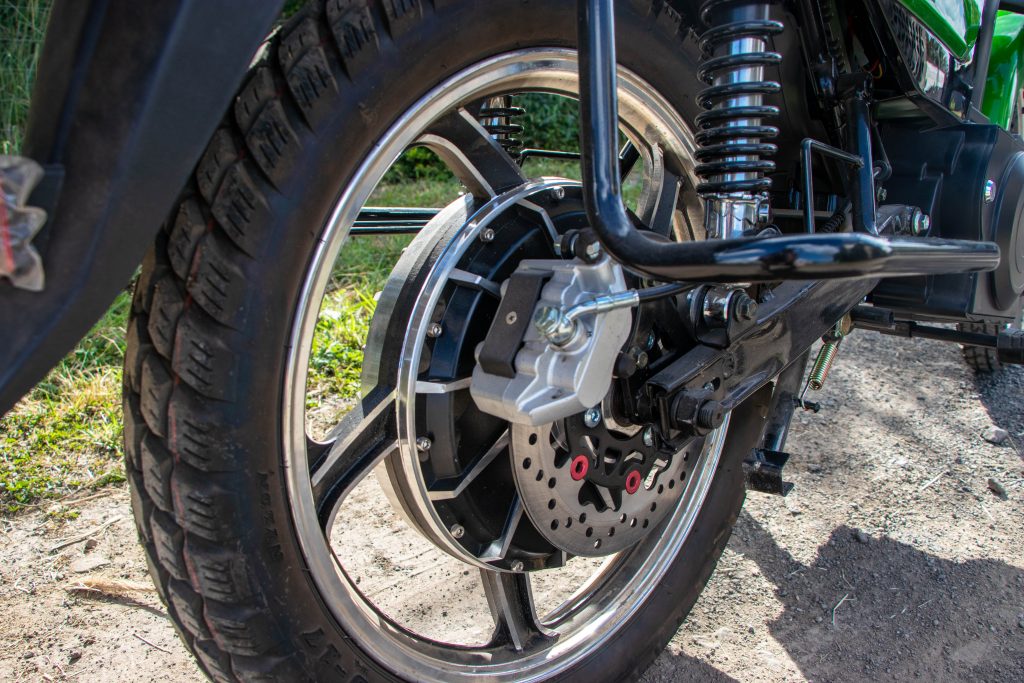
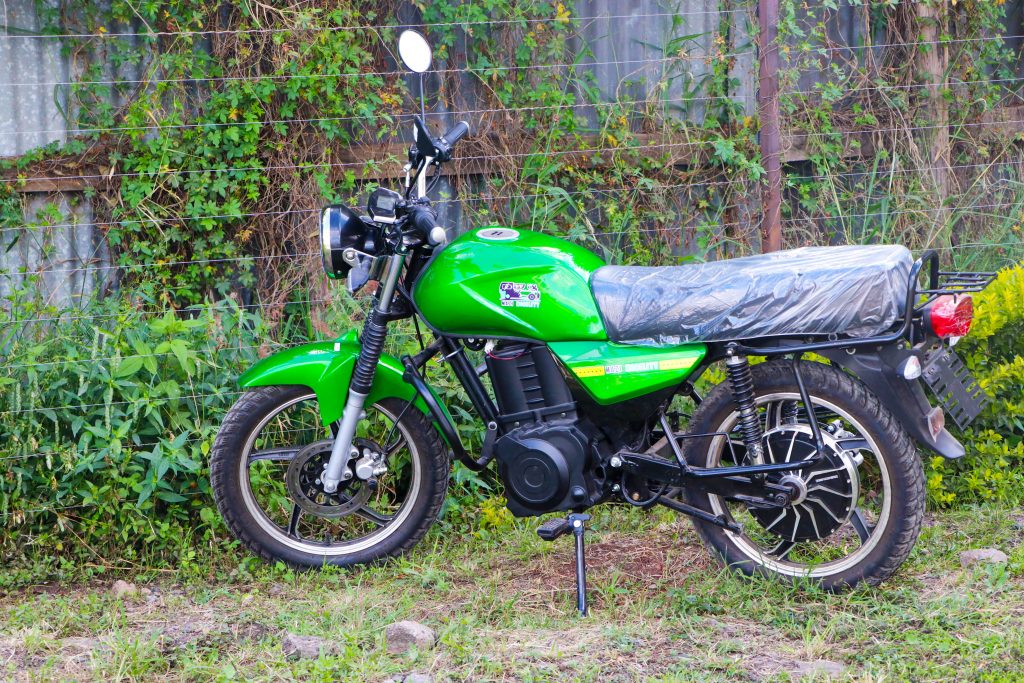
CAN IT BE POSSED IN HIRE PURCHASE?